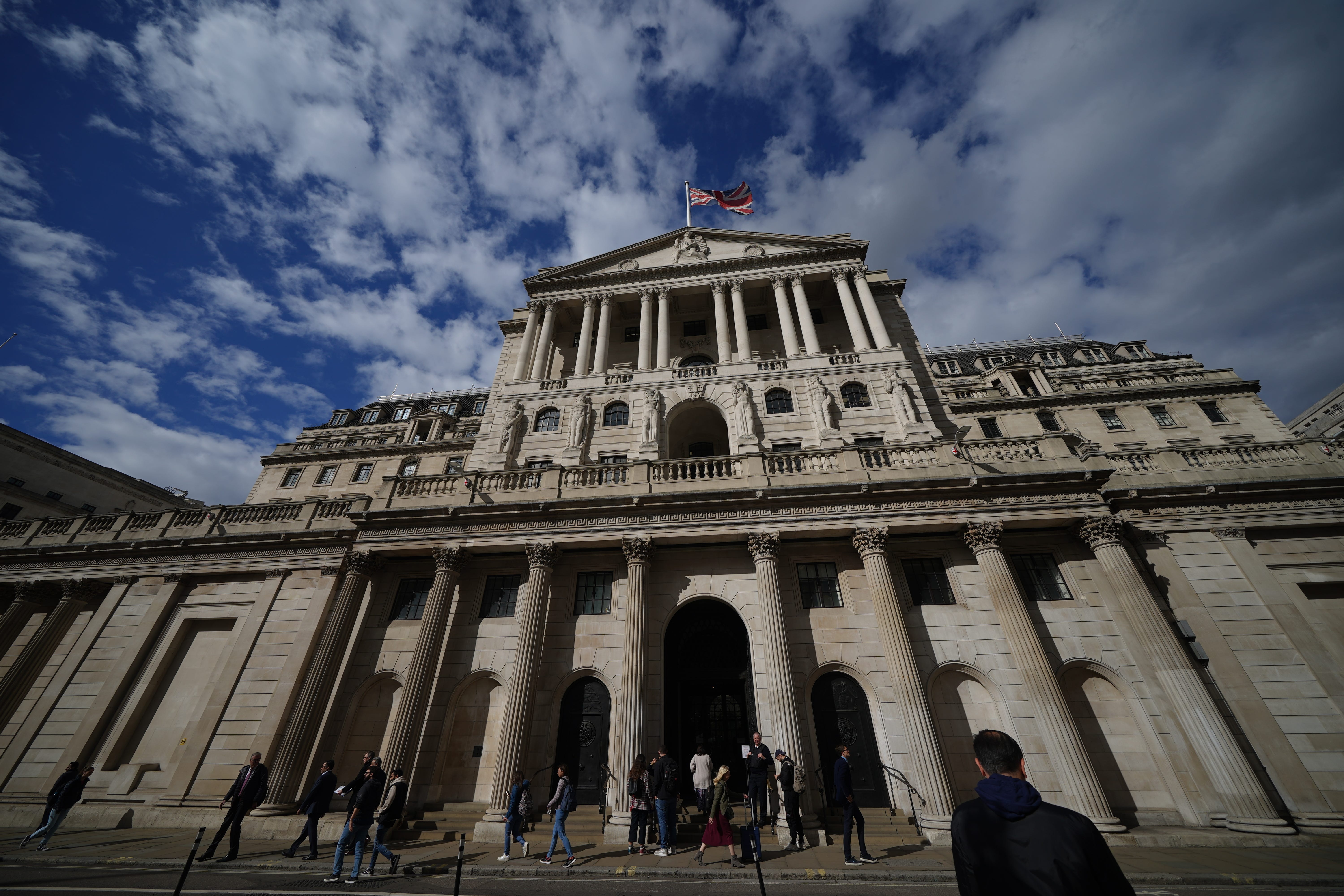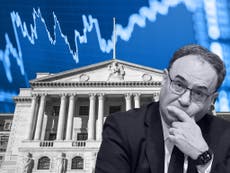Why the Bank of England can’t fix inflation being driven by Brexit, war and a Covid hangover
The UK economy is in trouble – it is time the government stepped in to help the Bank get rising prices under control, writes Sean O’Grady


Britain’s problem isn’t so much that it now has runaway inflation but that it’s the wrong kind of inflation altogether. It’s therefore being fought in the wrong way.
Of course, if the governor of the Bank of England, Andrew Bailey, pleaded that, he’d be ridiculed. But it is nonetheless true, and it means that the weapons that are being used to fight inflation are the wrong ones, and, like clunky trebuchets being used to take on a fighter jet, belong to a previous age. No wonder the Bank of England’s economic levers aren’t working. They’re barely even plugged in.
We should at least recognise that fact, and understand why interest rate rises are going to be much more painful in the months ahead. People will be made homeless needlessly, their lives destroyed. It need not be that way.
Inflation, it was once said by a wise economist, is always and everywhere a monetary phenomenon. Or, as another dictum goes, “too much money chasing too few goods”. Which means that when the economy has overheated, and there’s excess spending power, the way to curb that is to take money out of the economy. You do that by making it more expensive, and the price of money is the interest rate.
This time around there is also too much money chasing too few goods, but the problem has been on the “goods” side, the supply side of the British economy. In other words: we’ve got too few goods rather than too much money. This is a different root cause of inflation. As we all know, the economy is beset by labour shortages, and by more expensive food, energy and much else. These factors, in turn, are the product of Brexit, the unexpectedly lingering after-effects of Covid, a trend towards early retirement and, above all, the war in Ukraine. They’re not caused by cheap money or too much public spending.
To put it another way, crudely speaking, the British economy is having to adjust to a post-Brexit world where it can’t grow as fast as it used to. It no longer has the ready market-sensitive supply of labour from the rest of the EU, and productive investment, which determines future productivity growth and business capacity, has collapsed since the Brexit vote.
Those are the special, UK-only, factors which mean our inflation is more difficult to tame than in other comparable countries and have left us with an endemic wage-price spiral, highly resistant to the kind of modest baby-step rate rises the Bank has imposed since last year.
So, that’s why nothing’s working, no matter how hard Andrew Bailey yanks the Bank’s joysticks. But what might fix the inflation problem? The right answer would be to increase the supply of labour, food and energy. Unfortunately, the Bank of England doesn’t own any wheat farms or oil fields, and its staff aren’t available to work in the hospitality sector or drive lorries (just as well), so all it can do is keep ramping rates up until the economy responds – and to ramp them up much more vigorously than if Brexit (and Putin’s war) hadn’t happened.
It is the price of Brexit, and there is a chance that, seven years on, it will lead, as if on a slow fuse, to the housing crash George Osborne warned the nation about before the 2016 referendum.
There’s another problem. Compared to the last monetary squeeze in the 1990s, Britain has rather more disparity in housing today – a larger number of older people with no mortgages or very small ones, and a smaller number of younger people who have outsize debts in terms of their income, because of what’s happened in the real estate market.
For the early retirees sitting on debt-free housing, defined pensions linked to their past salaries and some cash in the bank, higher interest rates hold no fears – quite the reverse. For the thirtysomethings in Surrey and Sussex attempting to have a family and their own house, and now remortgaging, the prospect is terrifying.
The main burden of beating inflation through high interest rates is thus being borne quite arbitrarily by a fairly small group of people who are suffering catastrophic falls in their disposable income – on top of what food and energy price increases have already done.
Those with the kind of mortgage debt normal in the South will be many thousands of pounds worse off per annum. The pain is being even less fairly distributed than it was in the past. That’s not a problem for the Bank, because the same amount of aggregate spending power is being extracted from the economy; but it is a social and political challenge we’ve not even faced up to yet.
While hardly ideal, the alternative does need to be considered – using fiscal policy to bear down on inflation more, so that interest rates don’t need to go up so quickly. Indeed, the reality is that this may become inevitable because the level of rates that may be needed would endanger financial stability – bad debts are bad for banks. This means higher taxes, progressively applied, and aimed at those who are able to pay them without fear of losing their homes.
The idea of using taxes and public spending to “fine-tune” the economy and control inflation has long been out of fashion, and for a time monetary policy – interest rates – was the preferred approach, and applied by an operationally independent Bank of England free of political temptation.
That regime still has a lot to be said for it. However, it is becoming increasingly, distressingly clear that the Bank of England is a “one-club golfer”, and it could do with some help.
Higher taxes would also hurt, but they won’t shatter confidence and trigger a housing crash that might leave the economy in a slump for the rest of the decade. One answer, ironically, would be to levy capital gains tax on main residential homes, a tax that would only be paid by the rich when they became rich by selling up. It would also have the happy effect of dampening future housing booms and removing the diversion of investment into homes, not industry. At any rate, Jeremy Hunt and Rishi Sunak need to give Bailey and the monetary policy committee a bit more help. Will they?






Join our commenting forum
Join thought-provoking conversations, follow other Independent readers and see their replies
Comments